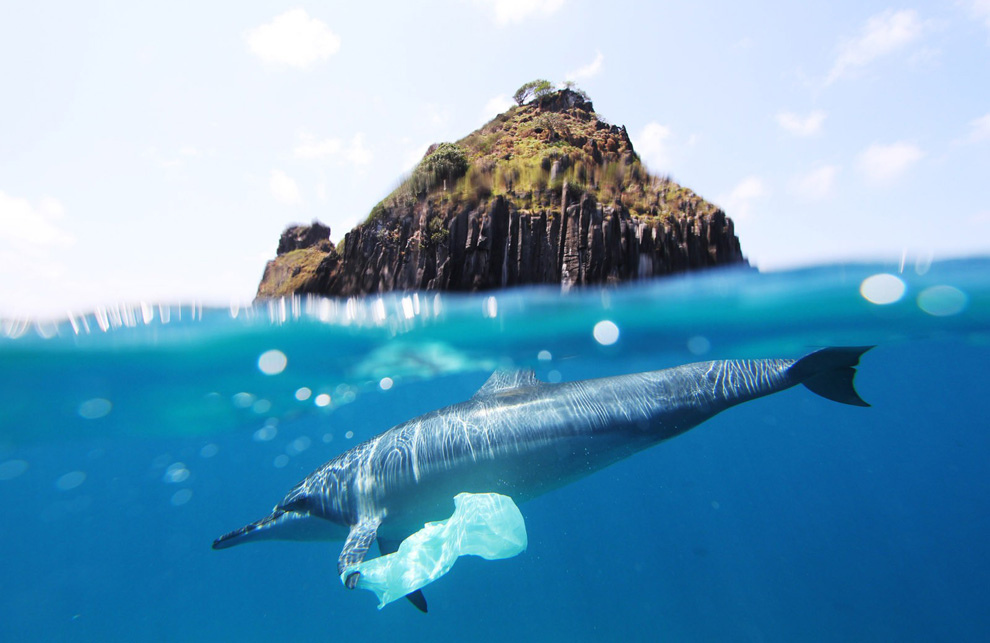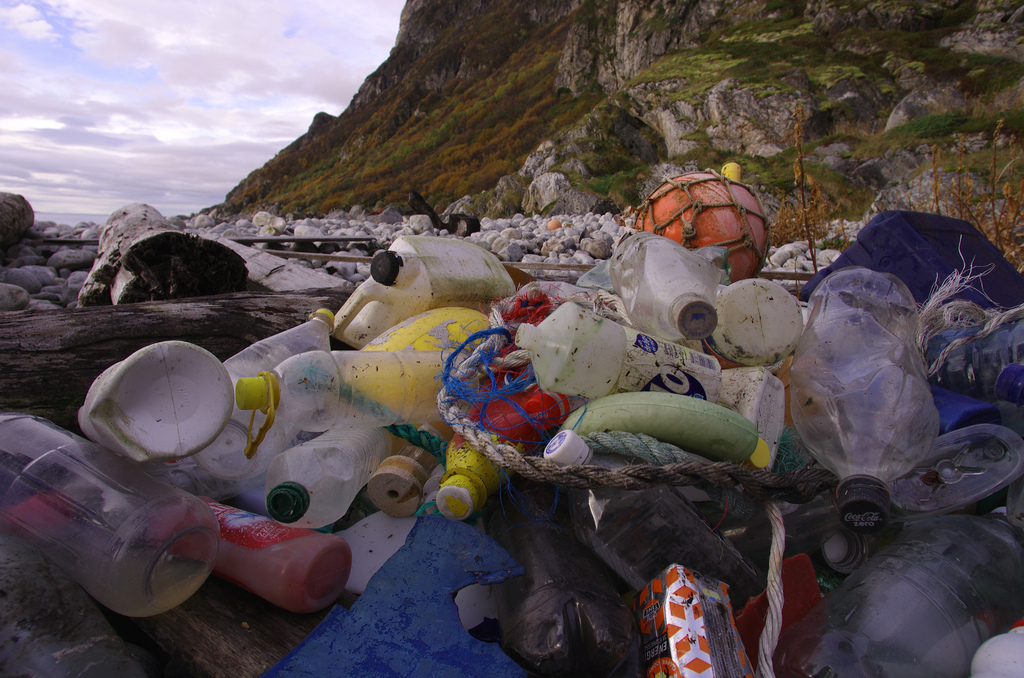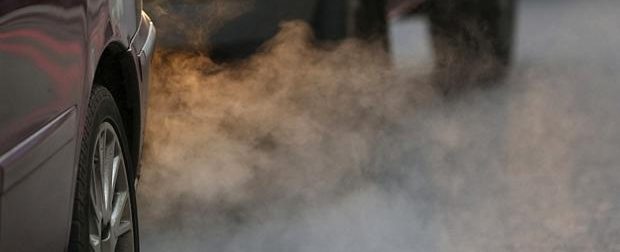Earth Day 2018: Scientists and NGOs worried about plastic filling our oceans

April 20th, 2018
Scientists and environmentalists have expressed concern for marine and human life following the findings of a recent study that the number of plastic bottles in the oceans is ‘rapidly’ increasing.
Concern was raised following the publication last month of the Ocean Cleanup Foundation’s study of the composition of the increasing marine pollution in the Great Pacific Garbage Patch.
The study indicates that marine plastic pollution is increasing “exponentially” in specific regions of the oceans. Plastic bottles were among the most common buoyant plastic objects to be identified.
One million plastic bottles are purchased globally every minute of which 91 per cent are not recycled. This is likely to increase with plastic production and waste expected to go up 20 per cent in the next two decades.
This springs bad news for our marine life. It is believed that 700 marine species are affected by plastic pollution with around 100 million marine mammals killed each year, according to a study from Plymouth University.
According to Ireland’s Friends of Animal Welfare, the problem with oceanic plastic waste is widespread as sea living creatures ingest and get tangled and birds also ingest it and die or feed it to their young.
Whales and dolphins are in particular. This became shockingly clear to the public in Spain earlier this year after a dead sperm whale washed up on a beach in Murcia on 29 kilos of plastic in its stomach.

dolphin plastic bag at fernando de noronha Photo: Jedimentat44
Plastic Impact on Marine Life and Humans
Plastic bottles and plastic bags are the most common items of large plastic debris found in the oceans, according to the Ocean Conservatory.
Plastic bottles are particularly harmful due to the type of plastic from which they are made: Polyethylene Terephthalate (PET). PET is a non-biodegradable substance.
However, it can be slowly broken down by the sun into small fragments known as micro-plastics through the process of photo-degradation. This process can take up to 450 years.
During photo-degradation, plastic both absorbs pollutants and leaches out harmful chemicals such as bisphenol A (BPA). These pollutants enter the marine food web following ingestion by marine life, with many then dying from either ruptured organs or starvation.
While the stomach and intestines of fish are removed before the fish eaten by humans, we still run the risk contamination by eating the likes of shellfish. The average European consumer ingests 11,000 pieces of plastic per year in shellfish alone.
Although the threat to human health is largely unknown at this stage, high levels of BPA in people’s blood has been linked to asthma, cancer and high infertility rates among men and premature births.
Marine debris also collects on or near the surface of the ocean, blocking the sunlight from reaching algae and plankton, which are responsible for forming the basis of the marine food web.
The disturbance of algae and plankton growth affects animals dependent on then for food and also predators such as sharks and whales which rely on such animals for their own food.
Marine life at greatest risk from plastic pollution is those which live in five regions of the oceans where the highest concentrations of marine debris accumulate. The largest of these regions is called the Great Pacific Garbage Patch.
Located halfway between Hawaii and California, the garbage patch equates to three times the size of France and is rapidly growing, according to the Ocean Cleanup Foundation’s study.

Single-use plastic cup on beach Photo: Øyvind Holmstad
How Plastic Enters the Ocean
One-tenth of global manufactured plastic ends up as waste in the seas, making up 80 per cent of plastic debris in the oceans.
Plastic debris enters the oceans having been washed or blown out to sea from beaches, highways, and streets. Loose plastic in landfills can also be deposited into streams, rivers or the oceans. Storm drains also feed plastic debris into the ocean’s adjoining rivers, according to the Sea Turtle Conservancy.
Much of this waste consists of plastic bottles. The recent All-Ireland Coastwatch Survey showed that plastic bottles were found at 80 per cent of all coastal sites surveyed.
Mindy O’Brien, coordinator of Voice of Irish Concern for the Environment (VOICE) stated her concern about Irish plastic waste, noting that half a million single-use cups and 2.5 million plastic bottles are disposed of every day through landfill and incineration. None of these are recycled.
“There is a better way through prevention, recycling and composting and we call on the government to move on progressive policy to address the environmental and economic costs associated with plastic pollution and to adopt incentives to change corporate and individual consumption patterns,” continued Ms O’Brien.
Ireland is the top producer of plastic waste in Europe, producing 61kg of plastic waste per person per year, with concerned citizens are set to take action with the “Sick of Plastic” Shop and Drop” action this Saturday.
We now have over 350 volunteer organisers to mobilse 1000's to #ShopAndDrop tomorrow from Buncrana to Cobh as part of our Day of Action on Supermarket Packaging for #EarthDay2018 – We're getting excited now!! pic.twitter.com/84Oqvvh94X
— Sick Of Plastic (@SickOfPlasticIE) April 20, 2018
Organised by VOICE and Friends of the Earth Ireland (FOE), volunteers will encourage supermarket shoppers to leave their undesired plastic packing behind at the counters.
The campaign is asking people to shop as normal in your local supermarket and then take off the excess plastic packaging at the checkout and leave it with the cashier.
Volunteers will be handing out postcards shoppers can sign and hand in outlining six ways supermarkets can reduce unwanted plastic packaging
“We have never seen a response like this before. People are clearly sick of plastic, and Saturday’s Shop and Drop action is a chance for shoppers to let supermarkets know we want them to take action,” said Oisin Coghlan, Director of FOE.
“We’re all proud of the success of the plastic bag tax. Now we want supermarkets to reduce their packaging so we don’t have to take home more plastic than ever.”
Over the past month, Friends of the Earth wrote to the major supermarket retailers to alert them of this action and ask for their support in providing a receptacle on the day for shoppers to leave unwanted packaging after paying for their items.
Supervalu, Tesco and Aldi have confirmed they will provide a place on the day for shoppers to recycle their unwanted packaging after payment.
By Erin Kennedy

Erin is a final year BA (Hons) Journalism and Visual Media student at Griffith College Dublin. Originally from Zimbabwe, she is passionate about the environment and humanitarian matters.






